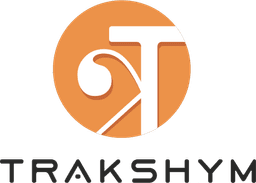Top Kubernetes Companies in Surat
2 Companies
Trakshym is a forward-thinking IT company dedicated to revolutionizing the digital landscape for businesses worldwide. Established with a vision to empower organizations through technology, Trakshym has rapidly emerged as a trusted partner for innovative IT solutions. Our core philosophy revolves around understanding and addressing the unique challenges faced by modern businesses in an increasingly interconnected world. At Trakshym, we pride ourselves on our diverse portfolio of services, spanning web and mobile application development, ERP solutions, custom business solutions, automation, AI/ML, DevOps, and API services. We don't just provide off-the-shelf solutions; instead, we meticulously craft each product to align with the specific needs and aspirations of our clients. Our team of sRead More
N/A
10 to 49
2022
India
Boost your business with DI Solutions, offering top-notch custom software development services tailored to meet your specific needs. Get started today!
<$25/hr
50 to 99
2013
India

%3Falt%3Dmedia%26token%3D9fdc5432-dd32-452e-bcfa-317c09a881ca&w=256&q=75)